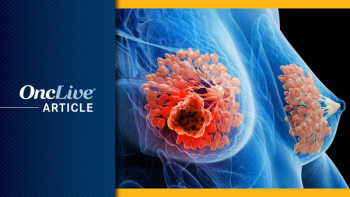
Overcoming Endocrine Resistance in Breast Cancer
The PI3 kinase pathway is a survival pathway that is important to the division and proliferation of cells, states Ingrid A. Mayer, MD, MSCI. This pathway is often an essential escape mechanism in estrogen receptor (ER)-positive tumors, which causes resistance to therapy. However, the combination of a PI3K inhibitor and endocrine therapy could potentially circumvent this resistance, Mayer notes.
To test this theory, a number of PI3 kinase inhibitors that target specific isoforms are entering phase III clinical trials. Some of these therapies have shown activity in patients with a PIK3CA mutation while others have not, adds Mayer. In the FERGI study, the PI3 kinase inhibitor pictilisib with fulvestrant demonstrated a progression-free survival (PFS) of 6.6 months compared with 5.1 months with placebo (P = .0959). However, in those with both ER and PR-positive disease, the median PFS was 7.4 months with the combination versus 3.7 months with placebo (P = .002). While PIK3CA mutations did not impact the efficacy of pictilisib, newer alpha-selective PI3 kinase inhibitors appear to be more active in patients who have PIK3CA mutations.
Everolimus is an mTOR inhibitor that was evaluated in patients with refractory ER-positive breast cancer in the BOLERO-2 trial. Patients in this trial were randomized to receive standard endocrine therapy with exemestane or exemestane plus everolimus. The trial showed improvement in PFS but did not confirm an overall survival advantage. Adverse events of everolimus include mucositis, pneumonitis, and fatigue, notes Mayer. Based on the benefits seen in this trial, the FDA approved the combination for patients with HR-positive, HER2-negative breast cancer in 2012.




































